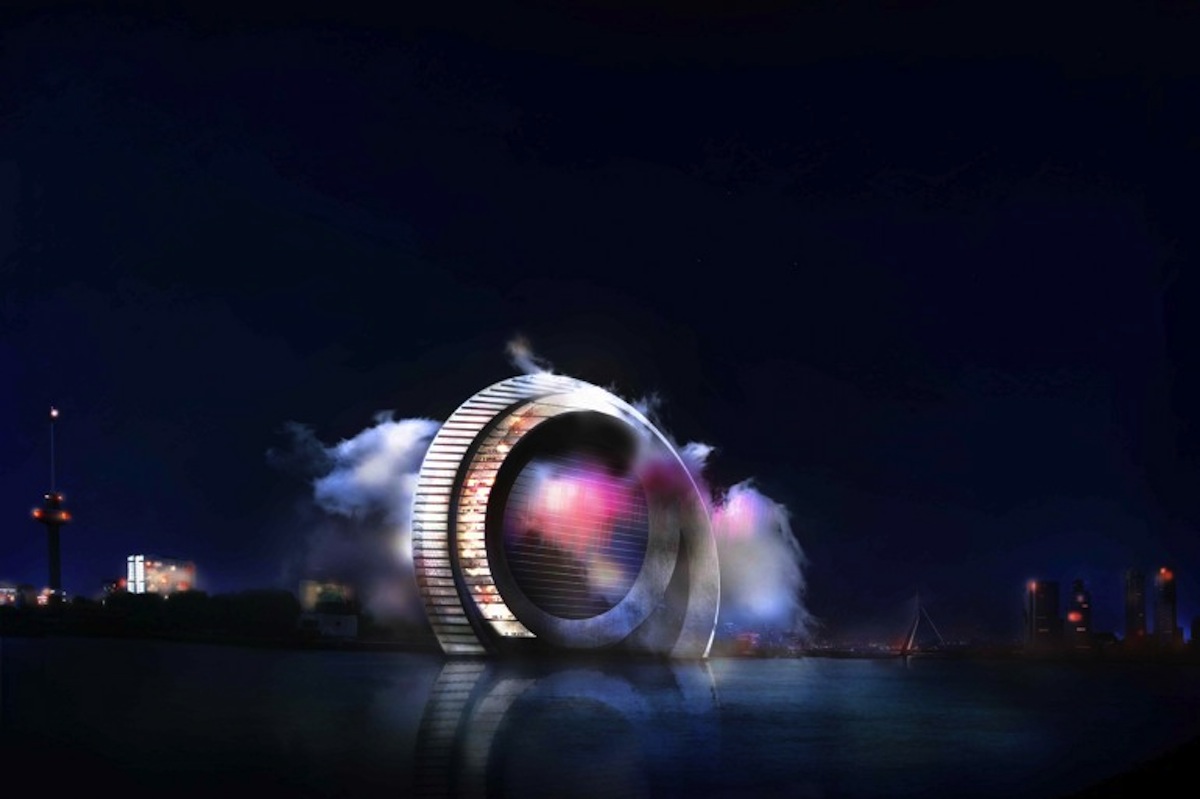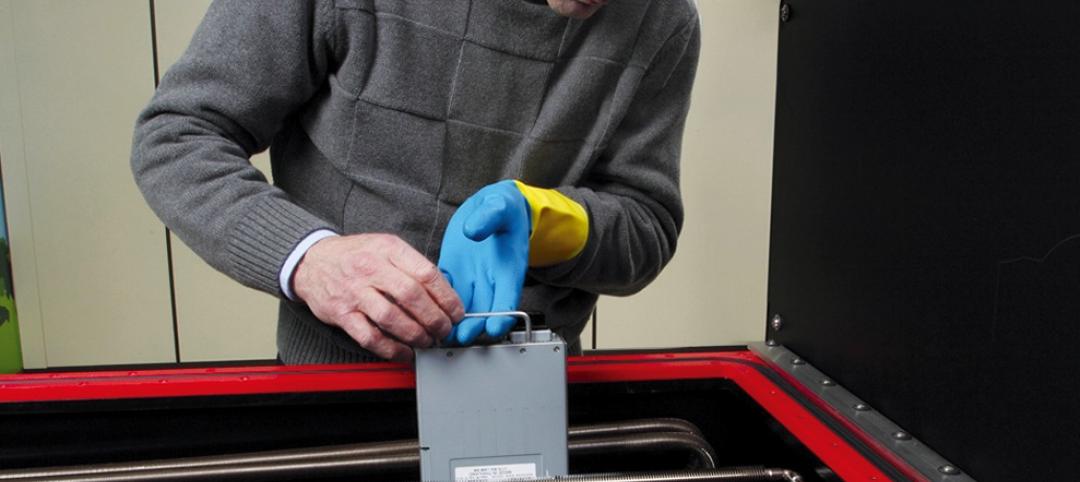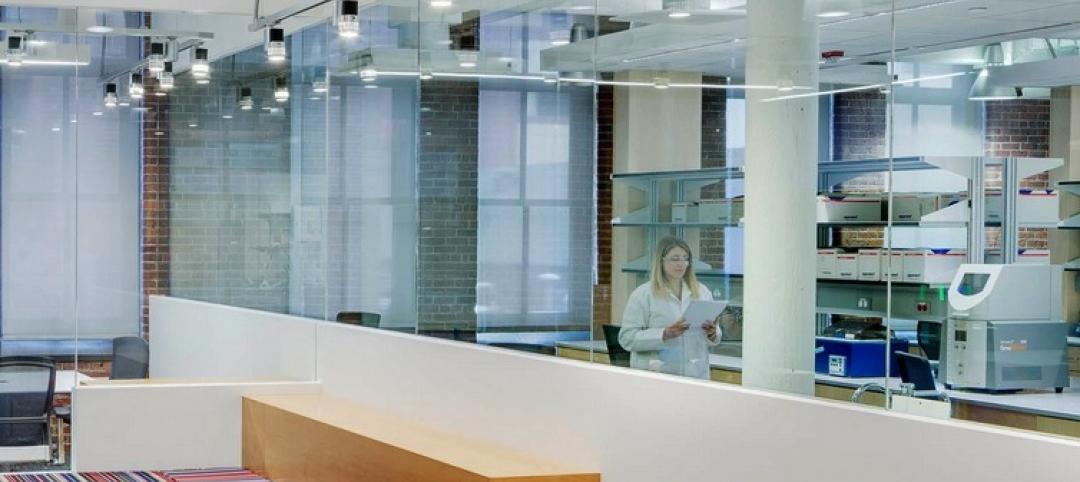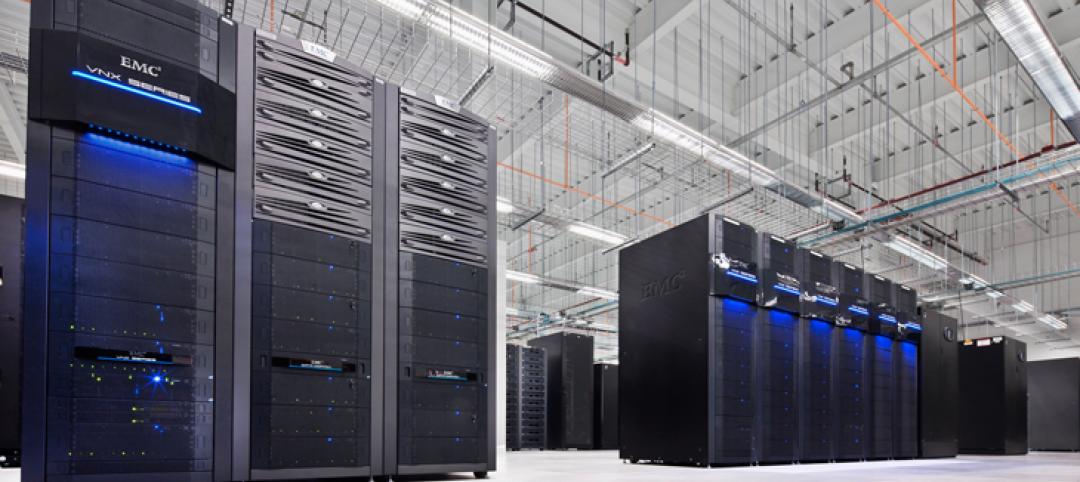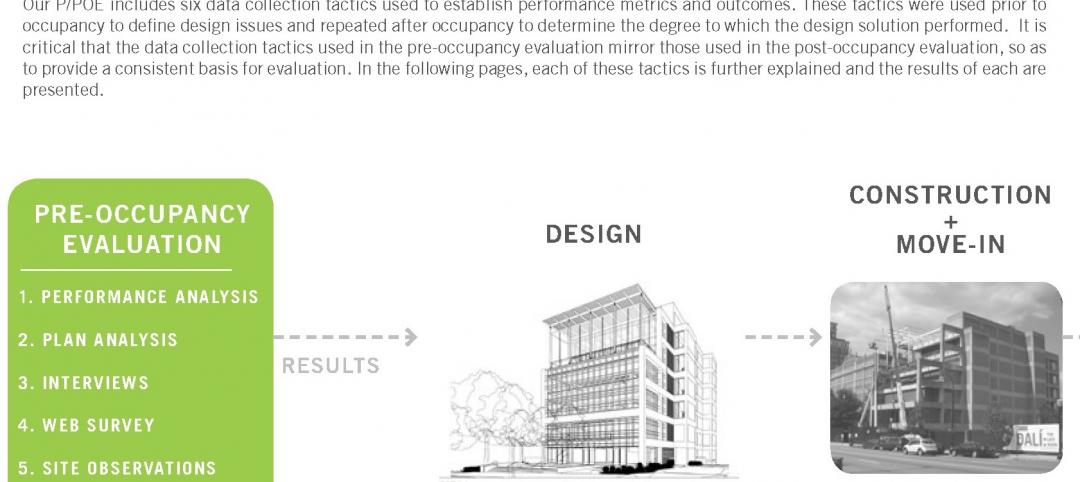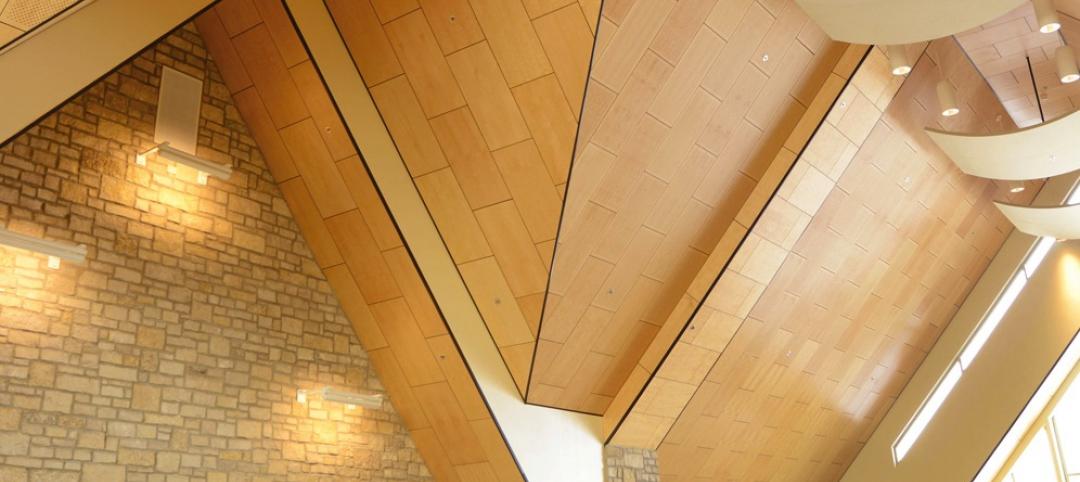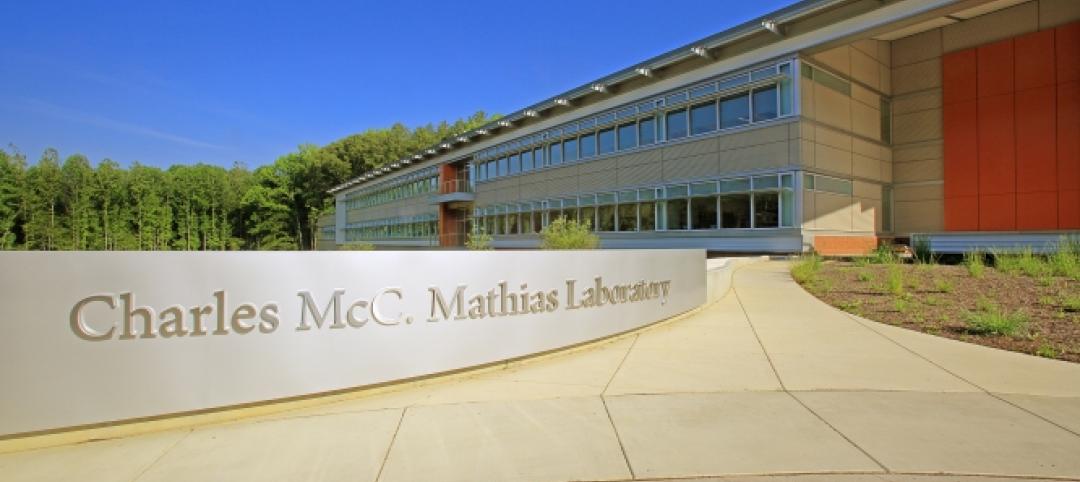A new project proposed for Rotterdam will harness wind to create energy. The Dutch Windwheel will be a wind energy converter that also houses apartments, a hotel, and a roller coaster. According to Gizmag, the windmill was designed to serve not only as an energy icon, but also as a tourist attraction and residential building.
The Dutch Windwheel is a 571-foot structure has two wings. The larger outer ring will house 40 pods on rails that move around the ring and provide views of the city and surrounding port. The inner ring will house 72 apartments, a 160-room hotel on seven floors, a panoramic restaurant, and a viewing gallery.
Using a technology developed at Delft Technical University, the windmill generates energy by harnessing the movement of charged water droplets in the wind. Since there are no parts of the attraction that move, it's essentially silent and easier to maintain than traditional wind turbines. Additionally, the Dutch Windwheel uses photovoltaic thermal hybrid panels to contribute to the generation of electricity.
The project is being planned and developed by the Dutch Windwheel Corporation, a consortium of Rotterdam-based companies: BLOC , DoepelStrijkers, and Meysters. The group says the windwheel could draw around 1.5 million visitors per year.
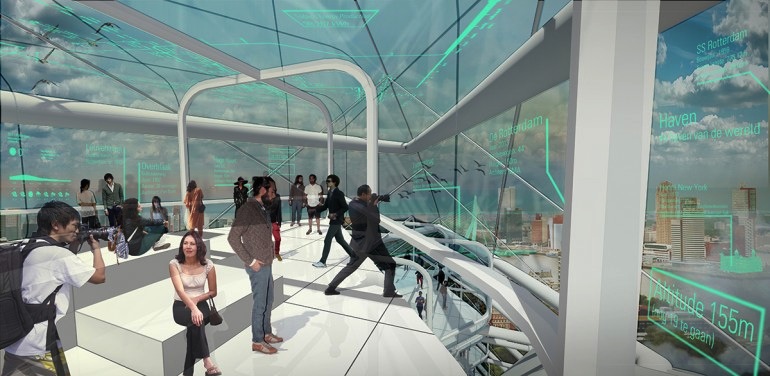
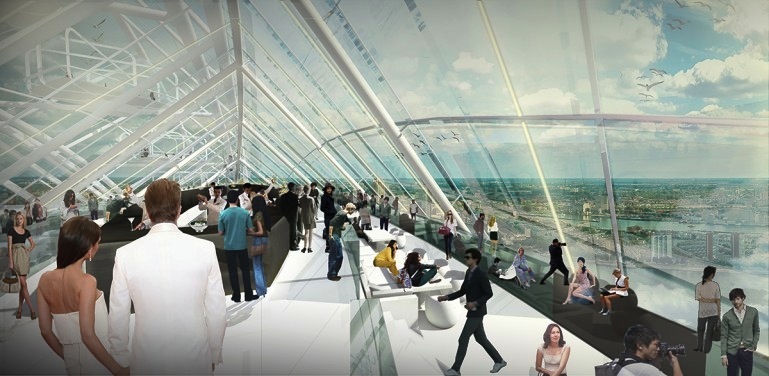
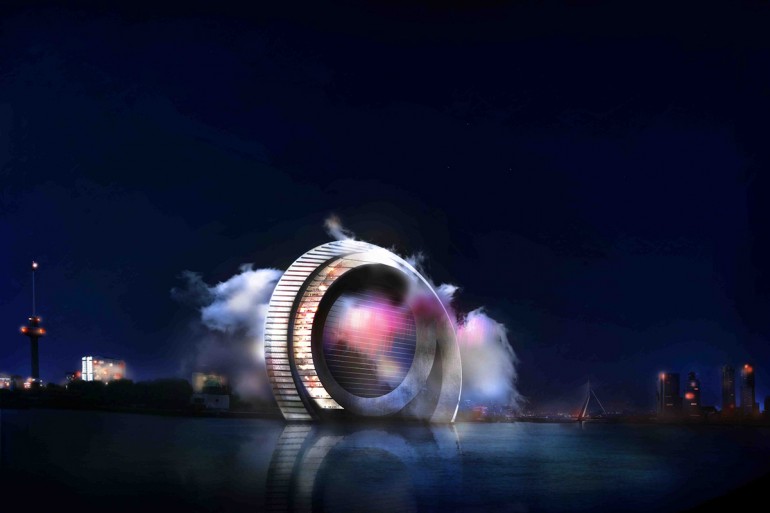
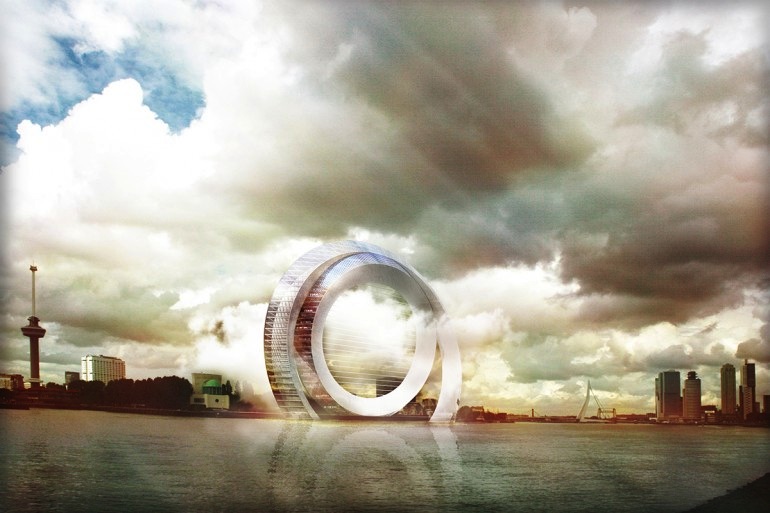
Related Stories
| Oct 16, 2014
Perkins+Will white paper examines alternatives to flame retardant building materials
The white paper includes a list of 193 flame retardants, including 29 discovered in building and household products, 50 found in the indoor environment, and 33 in human blood, milk, and tissues.
| Oct 15, 2014
Harvard launches ‘design-centric’ center for green buildings and cities
The impetus behind Harvard's Center for Green Buildings and Cities is what the design school’s dean, Mohsen Mostafavi, describes as a “rapidly urbanizing global economy,” in which cities are building new structures “on a massive scale.”
| Oct 14, 2014
Slash energy consumption in data centers with liquid-based ‘immersive-cooling’ technology
A new technology promises to push the limits of data center energy efficiency by using liquid instead of air to cool the servers.
| Oct 12, 2014
AIA 2030 commitment: Five years on, are we any closer to net-zero?
This year marks the fifth anniversary of the American Institute of Architects’ effort to have architecture firms voluntarily pledge net-zero energy design for all their buildings by 2030.
| Oct 9, 2014
Beyond the bench: Meet the modern laboratory facility
Like office workers escaping from the perceived confines of cubicles, today’s scientists have been freed from the trappings of the typical lab bench, writes Perkins+Will's Bill Harris.
| Oct 1, 2014
4 trends shaping the future of data centers
As a designer of mission critical facilities, I’ve learned that it’s really difficult to build data centers to keep pace with technology, yet that’s a reality we face along with our clients, writes Gensler's Jackson Metcalf.
| Sep 24, 2014
Architecture billings see continued strength, led by institutional sector
On the heels of recording its strongest pace of growth since 2007, there continues to be an increasing level of demand for design services signaled in the latest Architecture Billings Index.
| Sep 22, 2014
4 keys to effective post-occupancy evaluations
Perkins+Will's Janice Barnes covers the four steps that designers should take to create POEs that provide design direction and measure design effectiveness.
| Sep 22, 2014
Sound selections: 12 great choices for ceilings and acoustical walls
From metal mesh panels to concealed-suspension ceilings, here's our roundup of the latest acoustical ceiling and wall products.
| Sep 19, 2014
Smithsonian Institution opens LEED Platinum lab facility
The Charles McC. Mathias Laboratory will emit 37% less CO2 than a comparable lab that does not meet LEED-certification standards.


